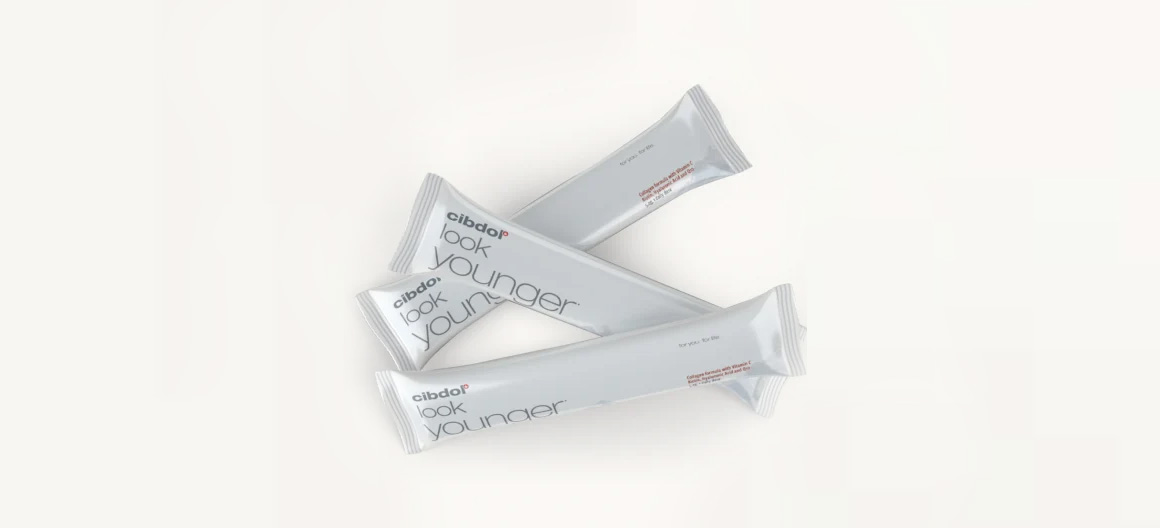Finding the right daily collagen dosage for You
Published:
Categories: CollagenCollagen supplements have become increasingly popular in recent years as more people learn about their potential health and beauty benefits. But with so many different types and brands of collagen on the market, how do you know what dosage is right for you? This detailed guide will walk you through the key factors to consider when finding your optimal daily collagen intake.
Contents:

What is Collagen and Why Supplement it?
Collagen is the most abundant protein in the human body, making up about 30% of total protein content. It's the main structural protein that gives strength and flexibility to connective tissues like skin, tendons, ligaments, bones, and blood vessels.
As we age, our bodies produce less and less collagen naturally. This collagen depletion leads to common signs of aging like wrinkles, sagging skin, stiff joints, and weakened bones and muscles. Collagen supplements can help counteract this natural decline by enhancing collagen production.
Research shows supplemental collagen can provide these key benefits:
- Improved skin hydration, elasticity, and dermal collagen density
- Reduced wrinkles, facial aging, and cellulite
- Stronger nails and healthier hair
- Relief from joint discomfort and bone loss
- Gut healing effects like reduced inflammation and improved integrity
- Heart health by supporting arteries, muscles, and veins
Clearly there are many excellent reasons to add a collagen supplement into your daily routine. But to reap the full rewards, it's important to take an adequate dosage.
Factors that Influence Your Collagen Needs
There is no universal recommended daily allowance for supplemental collagen. The optimal amount can vary quite a bit based on these key factors:
Age
Younger people who start taking collagen earlier in life have higher natural collagen levels. They may need a lower maintenance dose around 5-10 grams per day.
People over age 40 begin to experience more rapid collagen decline. Higher doses of 10-20 grams daily help compensate for this accelerated loss.
Health Goals
Your dosage should align with your specific goals in taking collagen. For example:
- Skin and hair goals: 10-15 grams daily
- Joint support goals: 10-20 grams daily
- Gut healing goals: 5-10 grams daily
- Athletic performance and recovery: 15-20 grams daily
Match your dosage accordingly to target the areas you want to treat.
Body Size
Larger individuals naturally require a higher absolute amount of collagen than smaller people. A 120 pound woman may do well with 5-10 grams daily, while a 200 pound man may prefer 15-20 grams.
Base your dosage off your overall body size and composition. Go with 0.5-1 grams per 10 pounds of body weight.
Diet and Lifestyle
If you eat a diet rich in collagen-boosting foods like bone broth, eggs, citrus, berries, and vitamin C, you may require less from supplements. If your diet lacks these nutrients, bump up your dosage.
Those with high stress levels or very active lifestyles have higher collagen requirements from all the wear and tear on their bodies. Increase doses if you fall in this high demand category.
Type of Collagen
The source and type of collagen can impact dosage too. More bioavailable and concentrated hydrolyzed collagen typically requires lower doses than collagen peptides.
More potent collagen derived from multiple sources like chicken, bovine, and fish requires lower doses for the same effects.
How Much Collagen Should You Take Daily?
Now that you understand the influencing factors, here are some general dosage guidelines based on your situation:
- Maintenance or Prevention: 5-10 grams per day
- Moderate Health and Beauty Goals: 10-15 grams per day
- Therapeutic Goals for Joints, Injuries, or Surgery Recovery: 15-20 grams per day
- Athletic Performance and Recovery: 15-20 grams per day
The maximum effective dosage in studies tends to be around 20 grams. It's best to start low at 5 grams and gradually increase to find the lowest effective dose for you.
Split your daily amount into two or three doses throughout the day for better absorption. Take on an empty stomach or with only water if possible.
Expect to take collagen consistently for at least 3-4 months to see results. Be patient and stick with it!
Choosing a Quality Collagen Supplement
With your dosage determined, make sure you get a high quality collagen:
- Look for hydrolyzed collagen that is more bioavailable.
- Choose a multi-source collagen with 3-5 types for full spectrum benefits.
- Look for collagen peptides with vertebrae sourcing for safety.
- Seek a grass-fed, pasture-raised, organic source.
- Avoid unnecessary additives, sweeteners, and preservatives.
- Look for third-party testing for purity and potency.
Invest in a good brand sourced from reputable suppliers. Don't just go for the cheapest product.
Pay close attention to the collagen concentration. A dose of 10 grams means 10 grams of pure collagen, not 10 grams of powder.
Finding the right daily collagen dosage for You. Conclusion
Determining your ideal daily collagen dosage involves assessing individual factors like age, goals, size, diet, lifestyle, and the collagen source itself.
With a highly bioavailable multi-collagen supplement, a good maintenance dose is 5-10 grams daily. For more intensive therapy, dose up to 15-20 grams daily. Split this into smaller doses throughout the day.
Stick with your dosage for at least a few months for the full benefits. Provide your body with the collagen nutrition it needs to thrive at any age!
Resources used to write this article
Borumand, M., & Sibilla, S. (2015). Daily consumption of the collagen supplement Pure Gold Collagen® reduces visible signs of aging. Clinical Interventions in Aging, 10, 1747–1758. https://doi.org/10.2147/CIA.S93939
Choi, F. D., Sung, C. T., Juhasz, M. L., & Mesinkovsk, N. A. (2019). Oral Collagen Supplementation: A Systematic Review of Dermatological Applications. Journal of Drugs in Dermatology: JDD, 18(1), 9–16. https://jddonline.com/articles/dermatology/S1545961619P0009X
Clark, K. L., Sebastianelli, W., Flechsenhar, K. R., Aukermann, D. F., Meza, F., Millard, R. L., Deitch, J. R., Sherbondy, P. S., & Albert, A. (2008). 24-Week study on the use of collagen hydrolysate as a dietary supplement in athletes with activity-related joint pain. Current Medical Research and Opinion, 24(5), 1485–1496. https://doi.org/10.1185/030079908X291967
León-López, A., Morales-Peñaloza, A., Martínez-Juárez, V. M., Zeugolis, D. I., Aguirre-Álvarez, G., Alvarado-Gil, J. J., & Pérez-Silos, V. (2019). Hydrolyzed Collagen-Sources and Applications. Molecules (Basel, Switzerland), 24(22), 4031. https://doi.org/10.3390/molecules24224031
Moskowitz R. W. (2000). Role of collagen hydrolysate in bone and joint disease. Seminars in arthritis and rheumatism, 30(2), 87–99. https://doi.org/10.1053/sarh.2000.9622
Proksch, E., Segger, D., Degwert, J., Schunck, M., Zague, V., & Oesser, S. (2014). Oral supplementation of specific collagen peptides has beneficial effects on human skin physiology: a double-blind, placebo-controlled study. Skin pharmacology and physiology, 27(1), 47–55. https://doi.org/10.1159/000351376
Shibuya, S., Ozawa, Y., Watanabe, K., Izuo, N., Toda, T., Yokote, K., Shimizu, T., & Chiba, H. (2020). Efficacy and Safety of Oral Collagen Peptide Supplementation in Combination with Resistance Training in Older Adults: A Randomized Controlled Trial. Journal of frailty & aging, 9(2), 102–111. https://doi.org/10.14283/jfa.2019.41
Zague, V. (2008). A new view concerning the effects of collagen hydrolysate intake on skin properties. Archivos Latinoamericanos de Nutricion, 58(2). https://www.alanrevista.org/ediciones/2008/2/?i=art1
Sign up to our newsletter and enjoy 10% off one order
YOU MIGHT ALSO LIKE
Post related products
-

Look Younger CIBD0073


















